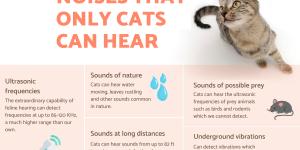Can Cats Sense our Fear?

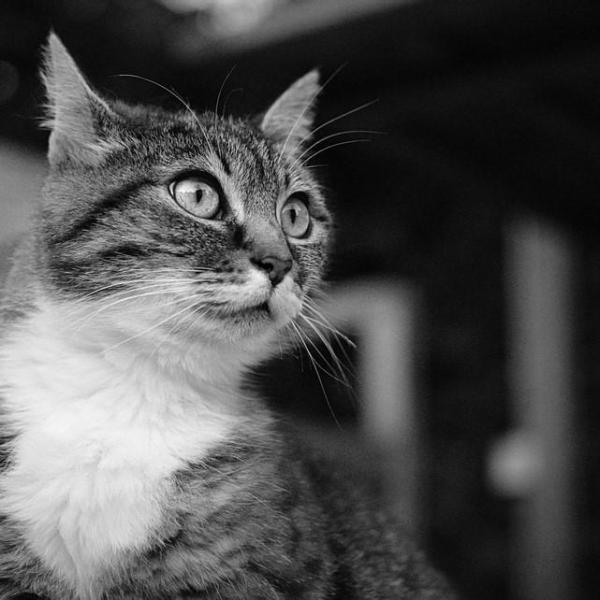

See files for Cats
When referring to fears or phobias, we should give a special mention to the phobia of cats or ailurophobia. This is the irrational fear of cats in humans. Normally it is linked to ignorance of the species and of all the legends that are known about them. But how does this impact our cat? Can it affect you?
AnimalWised want to expand on the question: Can cats sense our fear? Many people don't want to go near them and, when they do try to approach, the fear takes over. Let's discuss some techniques for both species to have a comfortable relationship with one another.
What does ailurophobia mean?
It is the extreme and irrational fear of cats. The word comes from the Greek ailouros (cat) and phobos (fear). It is very common among people who do not know the species well or are not very close to animals. So in the latter case, in general, they fear more than one species.
As most phobias are emitted by the subconscious as a form of protection, it is not as simple to control - it is a psychological problem. We have different roots or causes why these people may suffer from this problem:
- Bad experiences in childhood. These memories are anchored in the subconscious and appear before the presence of the animal. It may also be due to observing the parents' fear of the species and adopting the behavior as their own.
- Not having an interest in knowing cats, which is visualized as a slight fear or scorn since they never had a cat and prefer to ignore them.
- Bad press or superstitions. Such as they bring bad luck, are related to witchcraft or the devil, etc.
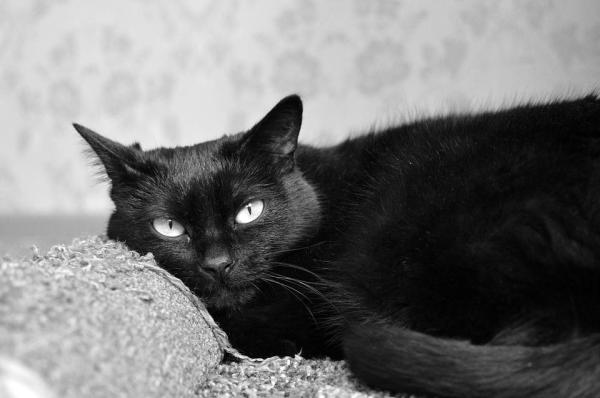
Symptoms in humans
When there is this phobia or fear towards a cat we make a series of actions, sometimes without realizing it, but that cats will not ignore. We have different degrees of fear, some very mild. Some people who just refuse to pet them or those who say "please lock your cat away, I'm very afraid."
In the case of suffering great fear towards cats we will have a series of symptoms due to the anxiety caused by their presence as:
- Palpitations
- Trembling or shaking
- Nasal allergy or cough
- Nausea and / or dizziness
- Choking sensation
They may be some of the most visible reactions in people to the presence of a cat, and somewhat similar to a panic attack. They must be treated with psychologists to overcome the phobia. But curiously, in the milder cases of fear, it is usual to observe that the cat is closer to them. What leads them to seek the person who fears them or does not want them around?
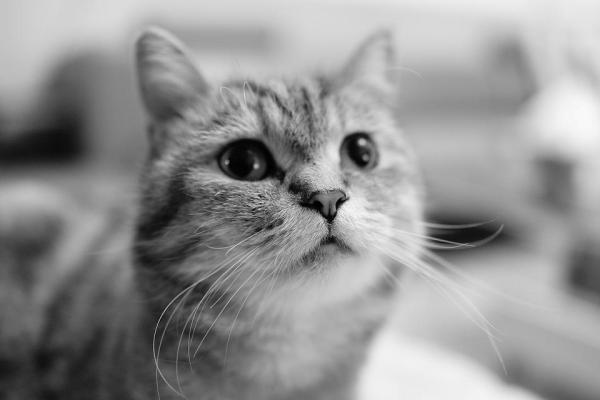
Can cats smell fear?
We have all heard that both cats and dogs can smell fear. Is this myth or Reality? Actually, it is indeed a reality, especially considering that they are predators and must get their food to survive.
When we are afraid of something we perspire and in general the sweat is cold. As we sweat, we give out the famous adrenaline, which our "hunters" can recognize from miles away. It is something we cannot control, just like a mouse in the presence of a cat or a deer in the presence of a lion.
But it is not exactly the adrenaline that smells but the pheromones that leave the body in a situation of stress. Here we must highlight something else, pheromones are detected by individuals of the same species, it is not what our cat smells when we are afraid. So what causes the cat to detect fear in people?
It is our attitudes that give us away. When we have full confidence in the animal we will try to make eye contact to touch or play with them. But in cases of fear, we look down, as if ignoring them. When the cat does not make eye contact with us, they will take it as a friendly signal and will approach. It is part of the feline body language, we do things without realizing it and cats interpret it in a positive way.
The cat gaze is one aspect of their body language, both with the same species and other species. When faced with a fellow cat, they often maintain eye contact over their interest or, when they are about to hunt their prey. In documentaries we see that the lion keeps their gaze fixed on their "future prey" and crouches down to it.
When we establish a very strong eye contact with a cat, especially if they do not know us, they are likely to hide or ignore us as because we are threatening to them. On the other hand, if we try to ignore them, they will come closer because we do not represent danger to them.
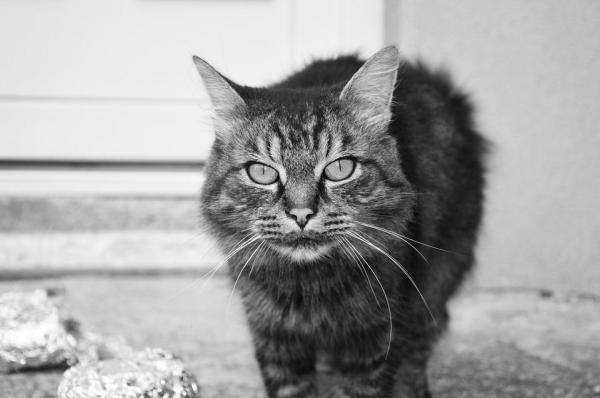
If you want to read similar articles to Can Cats Sense our Fear?, we recommend you visit our Facts about the animal kingdom category.




